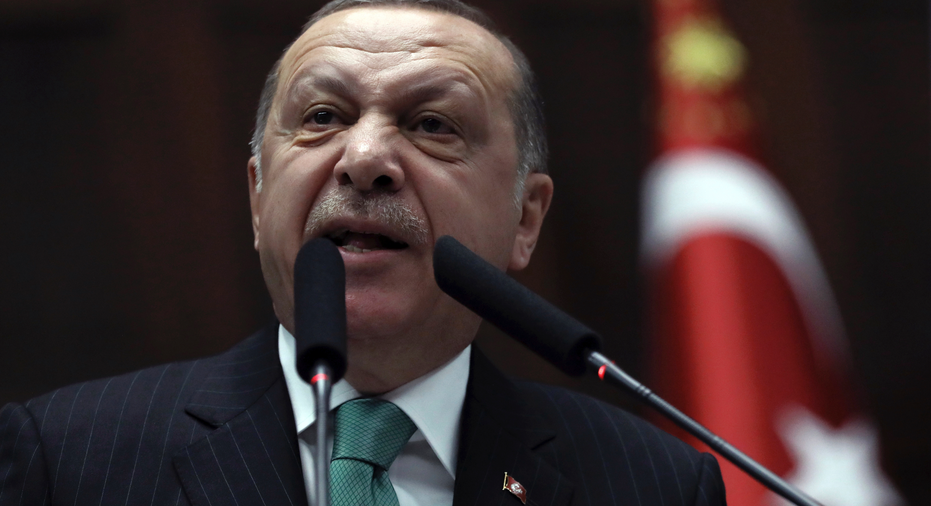Greece, Turkey try to calm tensions after Aegean Sea crash

ATHENS, Greece – The prime ministers of Greece and Turkey worked late Tuesday to calm escalating tensions after a Greek coast guard vessel was damaged in a collision with a Turkish patrol boat in the Aegean Sea, the site of a boundary dispute.
A government official in Athens said Prime Minister Alexis Tsipras of Greece and Turkish Prime Minister Benali Yildirim spoke by telephone about the circumstances of the boat crash. The official asked not to be named pending an official announcement.
No one was hurt in the collision, which happened near uninhabited Aegean islets over which Turkey and Greece nearly went to war in 1996.
Turkey's ambassador in Athens was summoned earlier in the day to receive an official complaint, while the Greek Foreign Ministry accused Turkey of "escalating and provocative conduct."
Tensions between the NATO allies already were rising over the warships Turkey deployed in recent days to block a rig from reaching a location off of Cyprus where Italian energy company Eni is scheduled to drill for natural gas.
Cyprus has been ethnically divided into a Turkish north and a Greek south since 1974. The internationally recognized government is on the Greek Cypriot side. Only Turkey recognizes the breakaway north, where it keeps thousands of troops.
Turkish President Recep Tayyip Erdogan defended the presence of the warships, telling lawmakers from his party Tuesday that companies involved in the gas venture should not "step out of line."
"We recommend that foreign companies don't allow themselves to be an instrument of issues that surpass their limits and strength, by trusting the Greek Cypriot side," Erdogan said. "Their show of strength lasts only until they see our ships and our planes."
Turkey opposes the drilling, which it says disregards the rights of Turkish Cypriots. It also claims as its own part of the area Cyprus has designated for exploratory drilling.
The Cypriot government says it has a sovereign right to drill, and that if the search is successful, any income would be shared equitably if the island is reunified.
Cypriot President Nicos Anastasiades refrained from direct comment on Erdogan's statements, but said Turkish naval activity should cause no public alarm.
"There's no reason for anyone to worry," he told reporters in the capital, Nicosia. "Actions are being taken in such a way so as to avert any kind of crisis."
Cyprus joined the European Union in 2004, but only the southern part enjoys full membership benefits. Turkey's bid for EU membership has been stalled for some time.
EU Commission spokesman Margaritis Schinas said EU authorities were monitoring the incident in the Aegean closely, adding that Turkey should avoid any "friction, threat or action" against an EU member state.
___
Nicholas Paphitis in Athens, Greece, Costas Kantouris in Thessaloniki, Greece, Menelaos Hadjicostis in Nicosia, Cyprus, and Lorne Cook in Brussels contributed.
___
Follow Gatopoulos at http://www.twitter.com/dgatopoulos and Fraser at http://www.twitter.com/suzanfraser



















